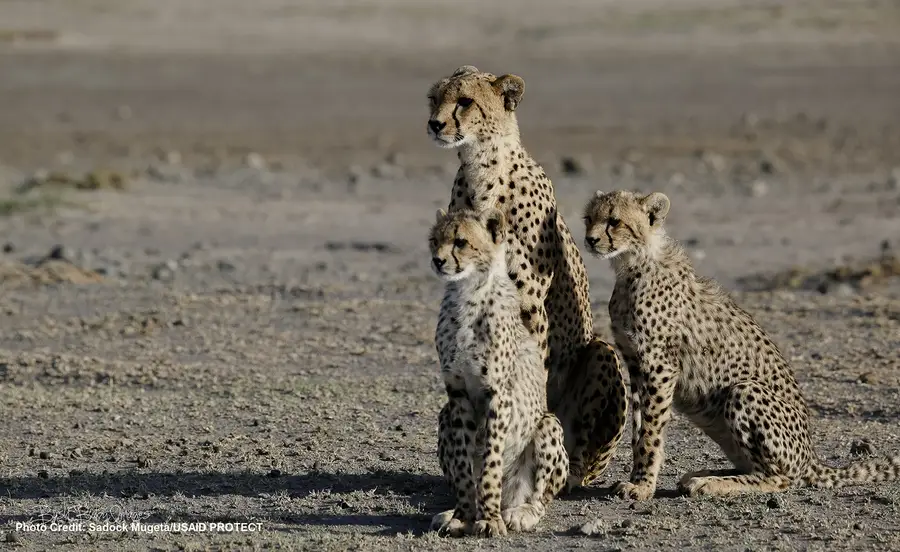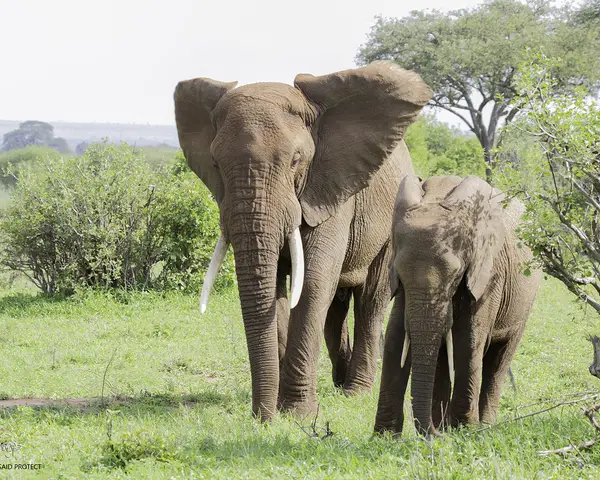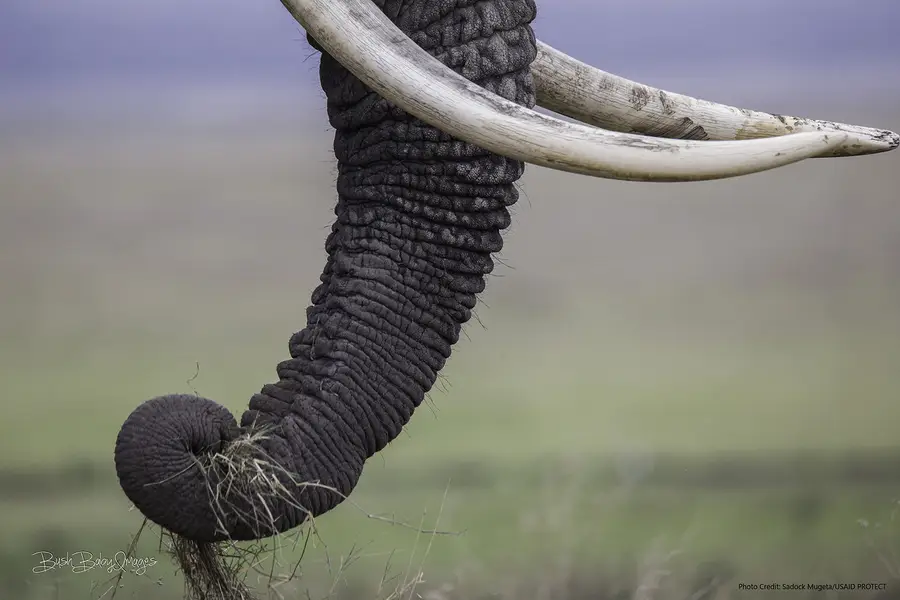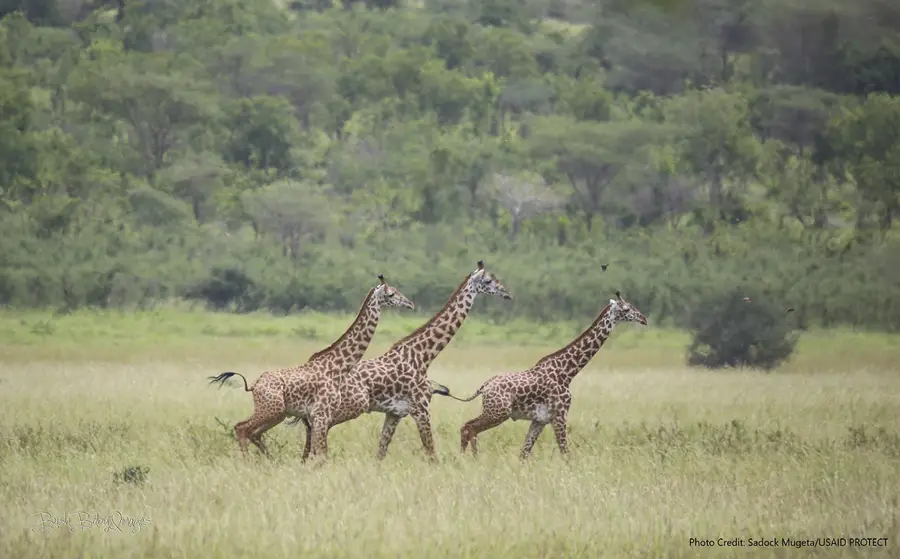
We sat down with Jennifer Talbot, Chief of Party of the USAID Promoting Tanzania's Environment, Conservation, and Tourism (PROTECT) Project, which is implemented by RTI International. She discusses the importance of combating wildlife crime, partnering with the private sector to support conservation efforts, and how this work will live on after the project closes at the end of this year.
How did you get involved in animal conservation efforts and why did this field attract you?
I first became interested in biodiversity conservation when my family visited Glacier and Yellowstone National Parks in Montana. This led to a fourth-grade report on the bighorn sheep and a love of wild huckleberry pie! Later, I volunteered in the Peace Corps in Benin, West Africa, working with hunters, beekeepers and traditional healers in a National Forest. My work in this field contributes to a larger global effort to conserve the remaining wild species and wild places still remaining on our beleaguered planet.
Why is combating wildlife crime vital to safeguarding animals and local economies?
In Tanzania, wildlife is one of the main attractions in the tourism sector, which generates significant income and employment for Tanzanians. If we continue to lose iconic species such as elephants, rhinos, lions and giraffes, to wildlife crime, the Tanzanian economy will suffer.

USAID Protect and USAID Wildlife Asia
RTI is working to combat wildlife trafficking across the value chain from Africa to Asia, addressing both the supply and demand sides of the trade.
How has USAID PROTECT engaged with the private sector and how do these public-private partnerships support biodiversity conservation?
We have engaged with the private sector at the national level with tourism and private sector apex bodies to support an improved enabling environment for the private sector. We have also engaged with non-traditional conservation partners, such as the aviation, shipping, logistics, and financial sectors, to encourage them to join the fight against wildlife crime. At the site level, we have worked with tourism lodge owners to leverage private sector assets to improve anti-poaching, biodiversity monitoring, coral reef restoration, and community engagement in conservation.
Knowledge sharing and training is a theme of USAID PROTECT’s work. Tell us about these efforts and how they have supported wildlife conservation.
We have concentrated much of our work on supporting three wildlife training institutions to be better equipped to train the next generation of Tanzanian conservationists. We have supported the revision and development of curricula for village game scouts, wildlife management, tourism and safety, and conservation technologies. We have also developed and conducted training for Tanzanian journalists on human-wildlife conflict, tourism, and combating wildlife crime so that they can improve their reporting on biodiversity conservation in Tanzania.

What are some of the key wildlife policies USAID PROTECT has supported?
We supported the government of Tanzania to gather and analyze data and involve diverse stakeholders to develop regulations on corridors and on the trade of endangered species. We have also supported national species conservation action plans for endangered chimpanzees and giraffes.
How does USAID PROTECT utilize technology to support conservation efforts?
We have been supporting the use of collars and camera traps to track the movement of elephants and lions in key landscapes to mitigate human wildlife conflict. We have supported the use of smartphones to facilitate anti-poaching patrols. We also helped introduce and operationalize an e-learning platform at the wildlife college, to enable students and lecturers to access online materials and course material remotely.

After five years, USAID PROTECT is coming to an end in 2020. What are you most proud of having achieved so far?
I am most pleased with our work on corridors and land-use planning with our partners, where we have been able to link the national and site-level efforts. We were able to generate national level support and discussion on the importance of corridors and land use planning as critical for biodiversity conservation. We have then been able to support our partners in the actual implementation of corridor and land-use planning work at the site level.
In what ways do you see the benefits of this project’s work living on after it closes?
Throughout the project, our focus has been to strengthen Tanzanian government and non-government institutions technically and operationally, including through thirty grants to local partners. These partners are now more self-reliant and better able to address the evolving threats to biodiversity conservation in Tanzania.

